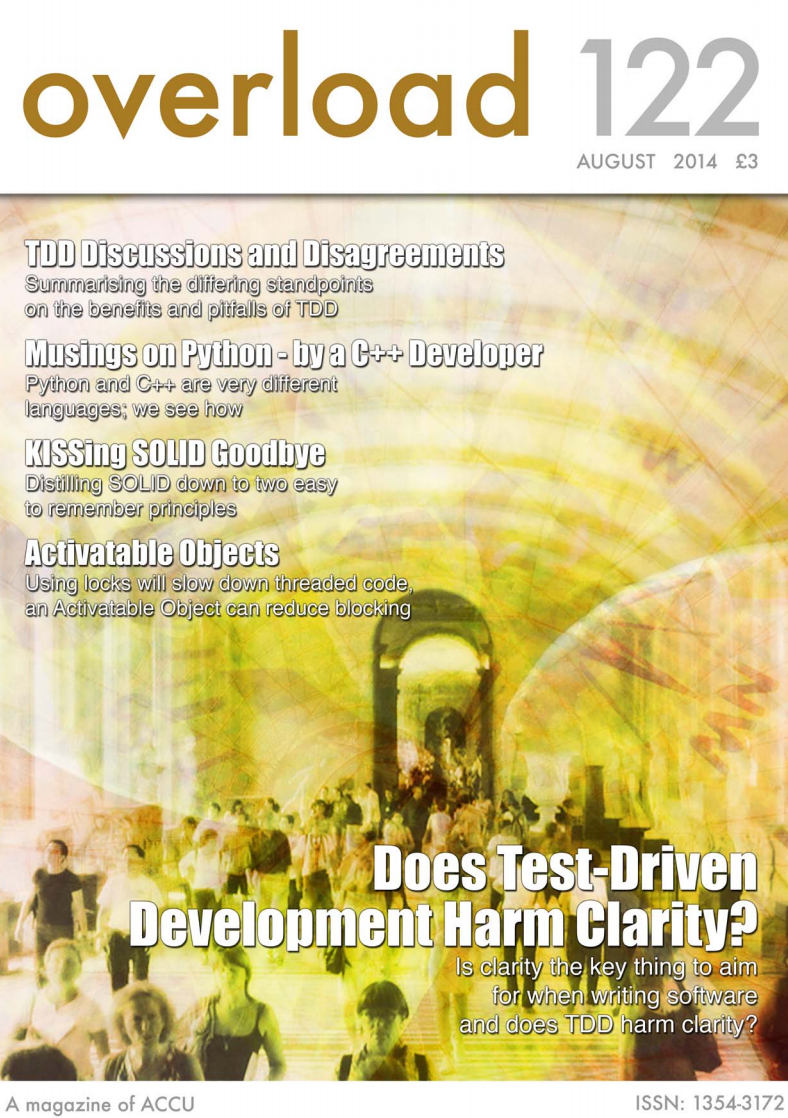auto considered awesome -- Jarryd Beck
Today's op-ed from our Australian correspondent:
auto considered awesome
by Jarryd Beck
From the article:
My last post about why you might not want to use auto may have left some people thinking that I think you shouldn’t use it. In fact I think you should almost always use it...

 A timely interview, with yesterday's confirmation that
A timely interview, with yesterday's confirmation that  New on Tales of C++, from our Argentinian correspondent:
New on Tales of C++, from our Argentinian correspondent: Jens Weller gives a nice perspective on the C++ landscape in 2014.
Jens Weller gives a nice perspective on the C++ landscape in 2014. Today in Infoworld:
Today in Infoworld: Overload 122 is now available. It contains the following C++-related articles, and more:
Overload 122 is now available. It contains the following C++-related articles, and more: